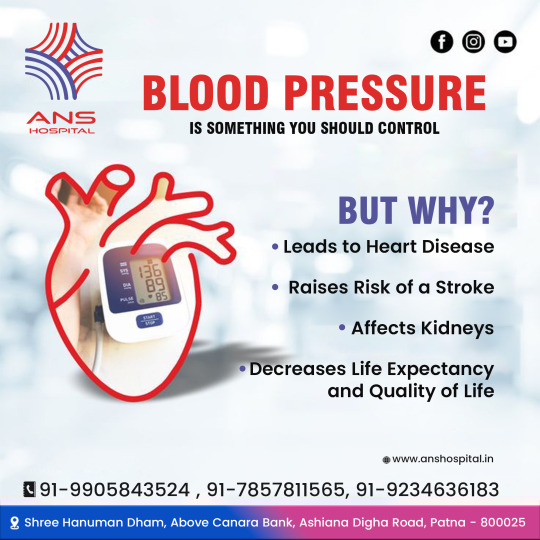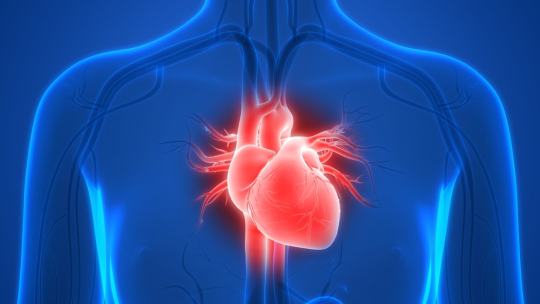#HeartHealthMatters
Text

Unravel the mysteries of smoking's impact on vascular health. Gain valuable insights into the correlation between smoking and vascular diseases, and the serious cardiovascular risks posed by this habit.
#smokingeffects#vascularhealth#vasculardiseases#cardiovascularrisks#quitsmokingnow#hearthealthmatters#healthyvascularsystem#notosmoking#heartdiseaseawareness#healthyhearthabits
2 notes
·
View notes
Text
What You Need For A Healthy Heart | Basic Heart Health Solutions
Heart health, which includes the circulatory system's resilience and appropriate operation, is an essential component of total well-being. Reducing the risk of heart disease and its associated problems while maintaining normal blood pressure, cholesterol, and blood vessel function are all part of it. A comprehensive strategy that incorporates healthy food choices, consistent exercise, stress reduction, enough sleep, abstinence from alcohol and tobacco products, and stress management is necessary to achieve optimal heart health.

Making heart health a top priority and implementing healthy habits can help you live a longer, more vibrant life, reduce your risk of cardiovascular events like heart attacks and strokes, and enhance your quality of life. Individuals are empowered to take charge of their cardiovascular health and develop habits that support a strong and resilient heart when they recognize the value of preventative measures and various lifestyle changes and adjustments.
#HeartHealth#HealthyHeart#CardioCare#HeartWellness#HeartHealthTips#HeartHealthyLifestyle#HeartFitness#HeartCare#HealthyLiving#HeartDiet#HeartExercise#HeartHealthSolutions#PreventHeartDisease#HeartHealthMatters#HealthyHeartHabits#HeartSmart#LoveYourHeart
0 notes
Text
For expert guidance and personalized care, visit us at Gokuldas Hospital or call at +91 9303773167.
0 notes
Text
Entering Cold Water Suddenly Can Cause Abnormal Heart Rhythms | livefitforever
Cold water immersion heart attack: Beware of cold-water immersion even if you are young, fit, and healthy reports new research done by researchers at Portsmouth University. Those who plunge into cold water to escape hot and sunny weather must take precautions because short-term benefits can inflict severe damage to the heart in the form of arrhythmias (abnormal heart rhythms). The abnormal heart rhythms can sometimes become fatal and life-threatening. Those who love cold-water immersion must heed to this research.
Entering cold water suddenly can be a shock to your system, potentially leading to abnormal heart rhythms. This phenomenon, known as cold water shock, can happen even to those who are healthy. It's important to be aware of this risk, especially when swimming or bathing in cold water. If you experience any unusual symptoms after entering cold water, seek medical attention immediately. Stay safe and take care of your heart health!
#ColdWaterShock#HeartHealth#StaySafe#WaterSafety#HeartRhythms#ColdWaterSafety#HeartHealthAwareness#StayInformed#WaterSafetyTips#HeartHealthMatters#HealthyLiving#WellnessTips
0 notes
Text

anshospital.in
Championing your health with ANS Hospital! 🏥✨ Understanding the significance of managing blood pressure – a cornerstone to a healthier tomorrow. 🌟 Untamed, it poses risks of heart disease, strokes, kidney issues, and shortens life expectancy. 🩸🚑 Take charge now for a vibrant and robust life! 💙
#anshealthempowerment#hearthealthmatters#bloodpressurewisdom#lifeinbalance#wallnesswithans#vitalityrevolution#healthytomorrow#bloodpressurecontrol#heartwellbeing#lifelongwellness
0 notes
Text
Concerned about that burning feeling? Wondering if it's heartburn or something more serious like a heart attack? 🤔 Join Dr. Kartik Bhosale for a clear talk on telling the difference. 🩺 Learn, ask, and take steps for a healthier heart! 💙 Don't let uncertainty get in the way of your well-being.
#drkartikbhosale#cardiologist#intervetionalcardiologist#hearttalkwithdrkartik#hearthealthmatters#takechargeofyourhealth#pune#wakad#ravet#hinjewadi#punawale#tathawade#nigdi
0 notes
Text
Patient Review | Sri Ramakrishna Hospital

Happy Patients, Positive Experience! 😊
We're committed to providing exceptional care and your kind words inspire us to keep up the good work! 👨⚕️🏥
Leave us a Google Review>> https://bit.ly/3YBGCeN
#sriramakrishnahospital#cardiology#cardiologist#hearthealth#hearthealthmatters#hospital#health#healthcare#multispecialityhospital#healthandwellness#medical#patientcare#patientreview#patienttestimonial#bookyourappointment
0 notes
Text
Happy World Heart Day! Today we bring awareness to heart health. Join us on FreezeCrowd.com to freeze with your healthy heart thoughts!❤️🫀
1 note
·
View note
Photo

"Unlock a Healthier Heart Naturally 🌿 - "Unlock a Healthier Heart Naturally (on Wattpad) https://www.wattpad.com/1379276963-quot-unlock-a-healthier-heart-naturally?utm_source=web&utm_medium=tumblr&utm_content=share_reading&wp_uname=47hope11&wp_originator=YPC3VeAVF%2FcJKwtDTdA46kuWm8i5unTI6ZJjawU7D%2BWNsp96Yd5jsuwjN4gWbtRhBNT%2F154aFBYoowg7WBAN6oGeBZLtpJ1WE6HlF63hAmFOX6sV1tipLENLnnknjDc8 Are you looking for natural ways to help your heart and keep your blood pressure in check? Look no further! We have an incredible mix of nature's best fixings that can help you on your excursion to a better heart. 🌿 Psyllium Powder: Wealthy in solvent fiber, psyllium can assist with directing cholesterol levels, advancing heart wellbeing. Acai Berries: Loaded with cell reinforcements, acai berries battle free revolutionaries that can hurt your cardiovascular framework. 🌿 Insulin Plant: Known for its glucose managing properties, it can in a roundabout way benefit your heart wellbeing. 🌱 Tricky Elm Bark: Mitigates the gastrointestinal system, advancing by and large wellbeing, which can emphatically affect heart wellbeing. 🌟 Chlorella: Stacked with fundamental supplements, it upholds by and large wellbeing, including cardiovascular capability. 🌰 Dark Pecan: Wealthy in omega-3 unsaturated fats, it can assist with lessening irritation and backing heart wellbeing. 🧡 Ginger Root: Contains intensifies that might further develop heart wellbeing by bringing down pulse and decreasing cholesterol. 🌿 Hyssop Leaf: May assist with lessening circulatory strain and irritation, adding to heart wellbeing.https://shorturl.at/tFV19 Papaya: A Fruit High in nutrients and cell reinforcements, papaya upholds a sound heart. ✨ Embrace the collaboration of these regular fixings! Integrating them into your day to day schedule can give the heart support you want to carry on with a heart-solid existence. 🏃♀️🏃♂️ Keep in mind, a reasonable eating regimen, standard activity, and keeping a solid way of life are significant parts of a heart-sound daily practice. Continuously talk with a medical care proficient prior to beginning any new enhancements. Your heart is your most significant muscle - sustain it with the gifts from Nature. ❤️🌿 #HeartHealth #NaturalSupport #HealthyLiving #WellnessJourney https://shorturl.at/tFV19
#balancedbloodsugar#bloodpressureawareness#bloodsugarcontrol#diabetesawareness#healthyheart#heartandbloodsugar#hearthealthmatters#hearthealthyliving#sugarfreelife#wellnesswednesday#non-fiction#books#wattpad#amreading
0 notes
Text
Cardiac Transplantation in the Adult Congenital Heart Disease Population

The adult congenital heart disease population continues to grow thanks to the success of their management in the paediatric age. This manuscript will briefly review the special characteristic of this patient population when they progress into end stage disease and require treatment in the form of heart transplantation.
Heart transplantation has become an effective therapy for patients with end stage heart failure. The success rate has now been translated to a median survival of close to eleven years. Considering patients with end stage heart failure have a mortality that is close to 100 per cent at one year, this is a fabulous achievement from science and medicine. It must also be noted that heart transplantation has had reasonable stable volumes for many years with less procedures than needed. It has only had a steady slight increase from 1993 to 2004 reaching an all-time high in 2015 with just over five thousand operations done worldwide. Not only does the heart failure population continue to grow overall, making heart transplant an even more precious resource, but there is also a patient population that has increased at an even higher proportion. This population is that of the patients with adult congenital heart disease who currently only represent approximately 3 per cent of the heart transplant operations done. Nevertheless, while that 3 per cent seems small, it represents a 40 per cent increase compared to the previous decade. This population is therefore likely to need wider representation in the near future.
Congenital heart disease is the most common cause of birth defects. The fact that this patient population is increasing is testament to the success of the surgical and medical management of the paediatric population. In the not too distant past, the more complex patients within this group of disorders used to end their lives in childhood. Thanks to breakthrough science, technology and medical improvements, the expected survival of these patients has improved dramatically. This has led to formal adult congenital heart disease programs that now care for these patients as they grow older.
As these patients grow older, they continue to require intense care. While it is true that the simpler and more common lesions such as an atrial septal defect rarely progress to end stage heart failure, the more complex cases such as those with tetralogy of Fallot, systemic right ventricle or the myriad of conditions that end up in single ventricle physiology do tend to continue to decline. Very notably, the main causes of death of the complex congenital heart disease population are by far due to cardiac reasons. Furthermore, within those potential cardiac causes of death which can include sudden cardiac death, ischemic heart disease or peri-procedural complications, the main cause is not the aforementioned but, indeed, end stage heart failure. If one keeps in mind that continued decline and refractory class IV symptoms are an indication for advanced therapies, such as cardiac transplantation, one can only expect that the number of patients with adult congenital heart disease that need a transplant will continue to increase. It must also be pointed out that this patient population is often ineligible to receive other forms of advanced therapies such as durable ventricular assist devices also known as mechanical circulatory support due to their specific anatomy and physiology. The latter comment means that, often heart transplantation is the only option despite the fact that some progress has been made with mechanical support and experience is being accumulated but so far the published data shows that there have been less than 200 durable mechanical devices in patients with congenital heart disease.

One of the most important reasons that the population in question merits its own chapter within the advanced heart failure subspecialty is that these patients carry more and very specific challenges. Some of these challenges are due to the fact that these patients have a higher incidence of entities such as chronic cyanosis (low oxygen levels in blood), multiple previous operations which means the tissue is harder to access and there is higher risk of bleeding; higher likelihood of kidney or liver impairment, higher incidence of pulmonary hypertension and the possibility of being sensitised immunologically. All these factors, alone or in combination mean that this kind of transplants are, in essence, higher risk transplants. Consequently, the mortality at thirty days and one year is significantly higher. Very notably, possibly due to the fact that this patient population tends to be younger than the overall cohort of adult heart transplants and that many of the challenges can slowly be overcome in the long-term after transplant, the mortality trend tends to be very similar at five years and, in fact, a higher proportion of patients with a history of congenital heart disease are alive compared to the rest of heart transplants. In other words, there is a higher up front risk but the long-term outcomes are better.
One subset of patients that warrants special attention is that of some of the most complex ones. These are the patients with single ventricle physiology or also commonly known as those who have had a Fontan procedure. What this means is that there is passive flow from the venous return into the pulmonary circulation without a ‘pump’ or right/subpulmonic ventricle. Blood passively flows through the pulmonary bed and returns to the single ventricle in order to be actively circulated systemically. While this is a life saving procedure, without which these patients would almost certainly die early in childhood, it has a large number of potential long-term complications, some of which add to the challenges seen at the time of requiring a heart transplant as the only choice to prolong life. Not only are there exclusive entities associated to the Fontan procedure which are protein losing enteropathy and Fontan-associated liver disease; but there is also an even higher incidence of arrhythmias, pulmonary hypertension, coagulopathy, congestion and allosensitisation. In addition, these patients have a tendency to develop collateral blood flow that is understood as a mechanism to compensate for the lack of a ‘right sided pump’. The problem with these collateral vessels is that they can represent a higher, and sometimes prohibitively risk of bleeding for thoracic surgery. Another point that is important to underline is that the chronic congestion can lead to liver failure requiring also a liver transplant in order to survive. Evidently, this further increases complexity. It has nevertheless been demonstrated that with adequate patient selection and management by a multidisciplinary team in a high volume centre, it is possible to have a successful dual heart and liver transplant programme for the failing Fontan patient.
It is not all bad news and challenging scenarios for the adult congenital heart disease population. In addition to the better long-term outcomes detailed above, some of the most complex patients that require a liver transplant can count with an immunologic advantage from the donated liver. In other words, in those patients whose immune system is sensitised against potential foreign tissue, the liver provides protection. These patients have lower incidence of rejection and when done carefully, can even afford some degree of incompatibility between the recipient and the donor. This effect is so prominent that the use of liver tissue has even been suggested as a strategy to successfully transplant sensitised patients.
In conclusion, heart transplantation is a formidable therapy for the adequate patient with all different sorts of end stage heart disease. One of this sort of diseases is that of the adult with congenital heart disease which is a patient population that continues to grow thanks to the paediatric successes. This is a special group of patients due to particular challenges that make their transplants higher risk. This risk is translated as higher short term mortality but overall better long-term outcomes. Further scientific and medical advancement is needed to further serve this growing population.
Read More: https://www.europeanhhm.com/medical-sciences/cardiac-transplantation-in-the-adult-congenital-heart-disease-population
#healthcare#heartbreak#CardiacTransplantation#MedicalScience#HealthcareAdvancements#HeartHealthMatters#CardiacRecovery#TransplantSurvivor
0 notes
Text
youtube
#CholesterolAlert#HeartHealthMatters#HealthyLivingWithHighCholesterol#CholesterolAwareness#LowerYourCholesterol#KeepYourHeartHealthy#HealthyHeartTips#CholesterolManagement#KnowYourNumbers#HeartSmartLiving#PreventHeartDisease#CholesterolControl#HealthyHabitsForLife#HeartHealthEducation#TakeChargeOfYourHealth#ReduceCholesterolNaturally#LifestyleChoicesMatter#HeartFriendlyDiet#StayHeartStrong#EmpowerYourHeart#HeartHealthFirst#Youtube
0 notes
Text
Healthy-Hearts
Embrace Healthy Hearts! Explore the realm of heart care with our expert team!
Assessing Heart Strength: Our advanced diagnostics include stress tests to evaluate your heart's endurance and identify potential concerns.
Nourish for Wellness: Learn how a balanced diet, rich in fruits, veggies, and omega-3 fatty acids, can support heart health.
Reach us @ +91 44 4222 9222, +91 99400 99992, +91 44 2811 3122
Visit@ http://orthomedhospital.com
#orthomed#orthomedhospital#HealthyHeart#HeartHealth#HeartWellness#HeartCare#CardioHealth#HeartHealthyLiving#HealthyHeartTips#HeartWellBeing#HeartFitness#HeartWellnessJourney#HealthyHeartHabits#HeartHealthMatters#LoveYourHeart#HeartHealthAwareness#HeartWellnessGoals#HeartSmart#HeartStrong#HealthyHeartLifestyle#HeartDiseasePrevention#HeartWellnessTips#KeepYourHeartHealthy#HeartAwareness#HeartFriendlyDiet#ActiveHeart#HealthyHeartChoices#HeartHealthEducation#HeartExercise#HeartCheckup
0 notes
Text
The Power of Cal-Mag: Unlocking the Benefits for Optimal Health

In the world of nutrition and wellness, certain essential minerals are often overlooked, despite their immense importance for our overall health and well-being. One such dynamic duo is calcium and magnesium, commonly referred to as cal-mag. These two minerals play vital roles in numerous bodily functions, and ensuring an adequate intake of both can have significant benefits. Let's explore the wonders of cal-mag and discover why it should be an essential part of your daily routine.
The Benefits of Cal-Mag:
Stronger Bones and Teeth: Calcium is renowned for its role in promoting healthy bones and teeth. It is essential for maintaining their structure and density, which is particularly crucial during childhood and adolescence when bones are developing. Magnesium, on the other hand, aids in the absorption and utilization of calcium, ensuring that it reaches its intended destination and contributes to the strength of your skeletal system.
Promotes Muscle Function: Calcium and magnesium work together to support proper muscle function. Calcium triggers muscle contractions, while magnesium relaxes them, helping to prevent cramps, spasms, and muscle tension. Incorporating cal-mag into your fitness regimen can enhance muscle performance and reduce the risk of muscle-related injuries.
Supports Heart Health: Both calcium and magnesium play vital roles in maintaining a healthy heart. Calcium helps regulate heart rhythm, while magnesium assists in muscle relaxation, including the heart muscles. Adequate intake of cal-mag can contribute to a healthy cardiovascular system, reducing the risk of heart-related issues.
Enhances Nervous System Function: The nervous system relies on calcium and magnesium to transmit signals efficiently. Calcium facilitates the release of neurotransmitters, allowing nerve cells to communicate effectively. Magnesium helps maintain the balance between excitation and relaxation in the nervous system. By ensuring sufficient cal-mag intake, you can support a healthy nervous system and promote optimal cognitive function.
Incorporating Cal-Mag into Your Routine:
To reap the benefits of cal-mag, it's essential to include food sources rich in these minerals in your diet. Dairy products like milk, cheese, and yogurt are excellent sources of calcium. Magnesium can be found in abundance in green leafy vegetables, nuts, seeds, and whole grains. Additionally, you can consider cal-mag supplements, available in various forms, to complement your dietary intake.
Remember, it's always recommended to consult with a healthcare professional or a registered dietitian before making any significant changes to your diet or starting a new supplement regimen.
If you are looking for a good Cal-Mag supplement, Check out Genestra Cal-Mag Raspberry Liquid at Healthy Parcel.
#CalMagBenefits#MineralPower#HealthyBones#MagnificentMagnesium#NutritionEssentials#HeartHealthMatters#NervousSystemBalance#MuscleWellness#WellnessJourney#HealthyHabits#healthyparcel#genestracalmag#calmagraspberryliquid
1 note
·
View note
Text
Our hearts get full of happiness to hear this.
For expert guidance and personalized care, visit us at Gokuldas Hospital or call at +91 9303773167.
0 notes
Link
🌱 Discover the power of a low cholesterol lifestyle! 🌱
✨ Low Cholesterol: A Guide to Understanding and Managing Your Levels ✨
Maintaining healthy cholesterol levels is crucial for our well-being. 🏥🫀 Whether you're looking to prevent heart disease or simply improve your overall health, our comprehensive guide has got you covered. 📚💙
Learn about the best dietary choices 🍎, exercise routines 🏋️♀️, and lifestyle habits 🌞 that can help you manage your cholesterol levels effectively. With practical tips and expert advice, you'll be empowered to make positive changes and take control of your health. 💪✨
Grab your copy of "Low Cholesterol: A Guide to Understanding and Managing Your Levels" today! 📖🔍
0 notes
Photo

Let’s know about heart failure symptoms and causes from the centres of cardiology and cardiothoracic surgery at Apollo Hospitals are among the largest Cardiac Centres in the world. https://www.apolloinformationcentre.com/heart-failure-symptoms-and-causes/
#HeartFailureAwareness #KnowYourHeart #HeartHealthMatters #CardiacCenters #HeartCareExperts #HeartFailureSymptoms #HeartFailureCauses #CardiologyCenter #CardiothoracicSurgery #ApolloHospitals #WorldCardiacCenters #HeartTreatmentOptions #HeartDiseasePrevention #HealthyHeartTips #HeartCareSpecialists
0 notes